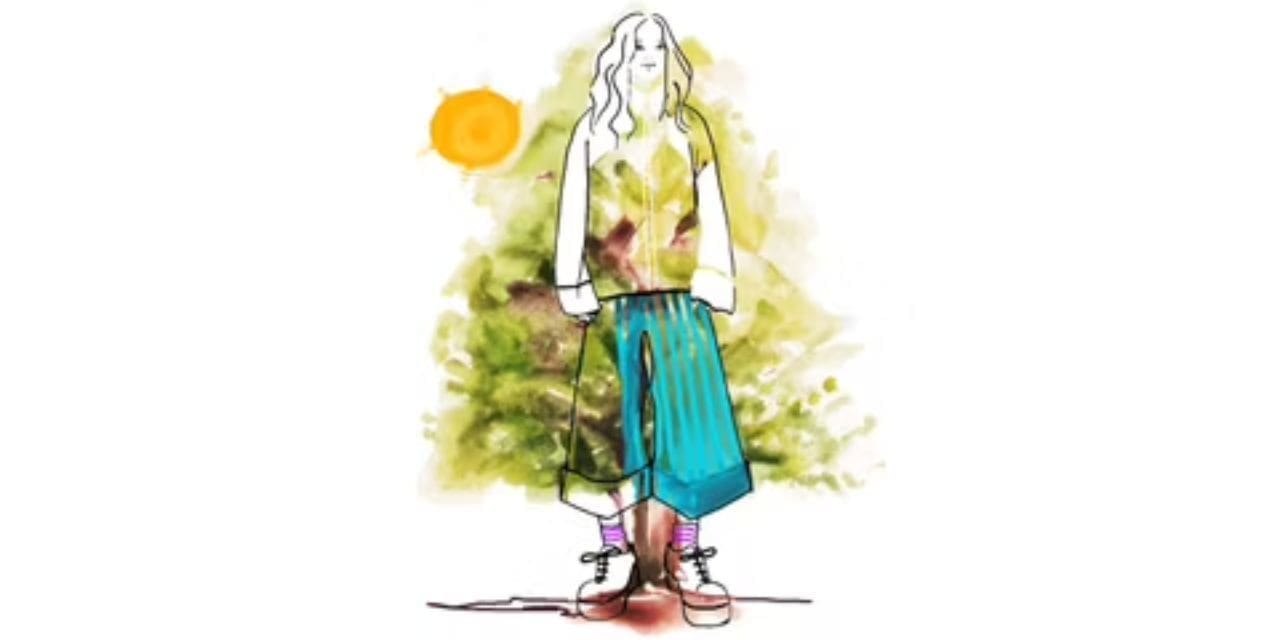When it comes to sustainability in the fashion business so far this year, April has been the busiest and most promising month. Earth Day on April 20th, Fashion Revolution Week, which honoured the tenth anniversary of the collapse of the Rana Plaza building in Bangladesh on April 24, 2013, and the World Retail Congress in Barcelona from April 25–27, which focused on sustainability, transparency, traceability, and responsibility, among other topics, all served as markers.
The most exciting news, though, came from the European Parliament’s Environment Committee, who drafted stronger rules and demanded an end to fast fashion, a form of commerce that encourages excessive production and consumption. The MEPs aim to urge nations of the European Union to develop recyclable, sustainable, and socially responsible goods instead. stronger, simpler to repair, recycle, and reuse fabrics.
Europe
The UK’s Green Claims Code, introduced ten months ago by the Competition and Markets Authority (CMA), attempts to teach companies and retailers how to prevent “greenwashing” by expressing their sustainability claims truthfully and properly in order to avoid misleading consumers.
Cecilia Parker Aranha, the CMA’s director of consumer protection, discussed the regulator’s continuing inquiry into and conclusions regarding the Green Claims Code in an interview with FashionUnited. She also shared tips on how to steer clear of “greenwashing” as a company and predicted what the future of fashion’s sustainability communication would entail.
Armedangels, a German clothing company, gave a nice illustration of this by altering its marketing approach and asserting that “sustainable products don’t exist”:
No matter how carefully and sparingly a product is produced, it nonetheless pollutes the environment and leaves an ecological impact. Listen attentively, but don’t believe claims that purchasing a product will benefit the environment, advised Katya Kruk, impact & innovation director at Armedangels. “The best thing you can do for the environment is to consume less and choose better quality.”
Technology
Technology advancements also occurred in April. The Hong Kong Research Institute of Textile and Apparel (HKRITA), for instance, unveiled Acousweep, a novel method for removing microplastics from wastewater using sound waves. Particles less than 5 mm are captured and separated; they are then gathered in a different container and can be recycled. The European Environment Agency claims that Eight percent of the European textiles that end up in the waters are synthetic. The EU is asked to address microplastics in the Circular Economy Action Plan, which was released in March 2022.
The Blackhorse Lane’s Denim Wash Lab and Innovation Hub, which opened its doors on April 20 in Walthamstow, is the first environmentally friendly denim wash facility in the UK. The G1 70 All-in-One washing machine and The Laser from Italian denim machinery specialists Tonello are two cutting-edge machines that will operate both commercially and serve as a learning tool for students, brands, and creatives looking to develop more environmentally friendly methods of working with denim washes.
The first commercially available materials science product in the world was introduced by Pangaia and Natural Fibre Welding (NFW).Mirum is a novel, plastic-free, plant-based material that can be used to create clothing, accessories, footwear, and automobile interiors. The most recent invention from Pangaia Lab is an air gilet, which combines Mirum’s exterior with a newly reformulated and thinner leather-like version of Flwrdwn, as well as Pangaia’s organic cotton, signature fleece lining, and Flwrdwn filling made from a combination of wildflowers, a biopolymer, and cellulose aerogel.
Discount retailer Primark debuted its first circular collection, and Zara collaborated with Circ on a line of recycled polycotton clothing. When the activewear company Smartwool introduced the “Second Cut” hiking sock, its first circular sock manufactured from used, abandoned socks mailed in by customers, it elevated textile-to-textile recycling to a new level.
making new socks out of old ones.
In the meantime, Puig, a cosmetics and fashion company, joined the Sustainable Markets Initiative’s Fashion Task Force, and Adidas revealed that 96% of the polyester used in their goods is recycled. The Natural History Museum in London exhibited a collection in conjunction with sustainable apparel firm Teemill, while Nike announced the release of new recycled collections for London and Paris as part of its Re-Creation programme this summer. The Coachtopia sub-brand, which is based on a circular design concept and Gen Z, was introduced by the US bag and fashion firm Coach. Additionally, the business is emphasising the recyclable market.
However, according to new analysis from financial think tank Planet Tracker, several of the largest textile corporations in the world, like AntaSports, Gap, Levi Strauss, Nordstrom, Under Armour, and Victoria’s Secret are among the companies that do not connect executive remuneration to environmental, social, and governance (ESG) performance, a crucial factor in the development of meaningful action.
Retail
Two retail initiatives aimed at making sustainability more tangible in April were 00.thestore in London and the Decathlon Mountain Store in Passy, France, which FashionUnited visited. On Rathbone Place in London, the third pop-up of the carbon-neutral store 00.thestore debuted. The goal was to handpick the most cutting-edge and interesting sustainable companies, to offer a physical platform for internet eco-conscious labels to attract a bigger audience, and to inspire customers to live more sustainably by connecting them with sustainable design.

